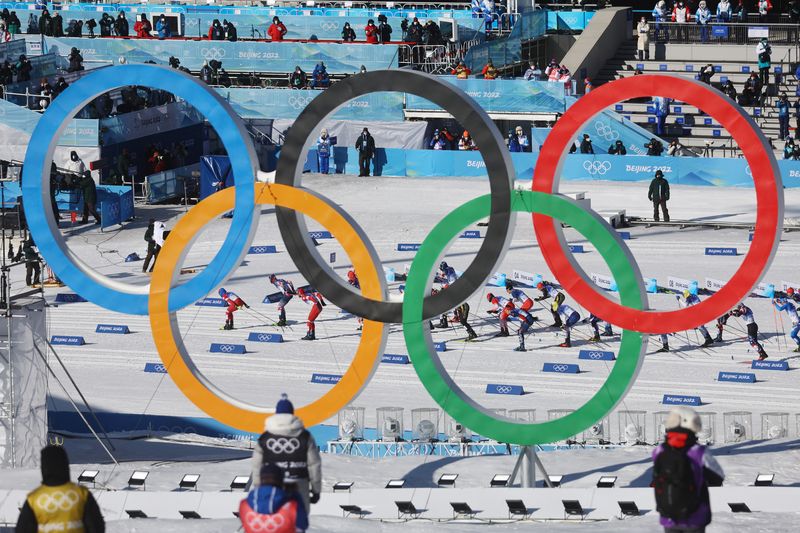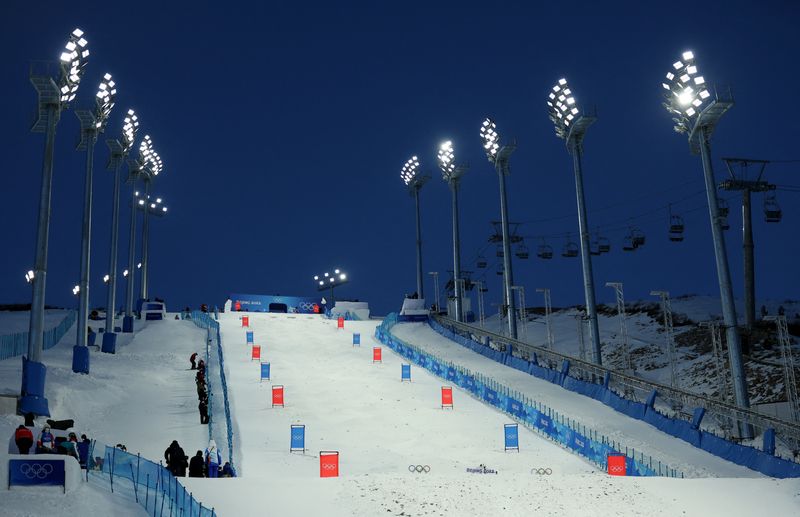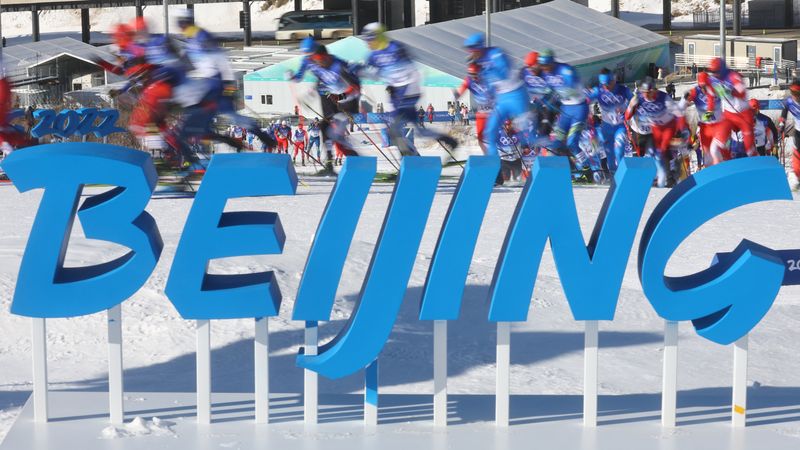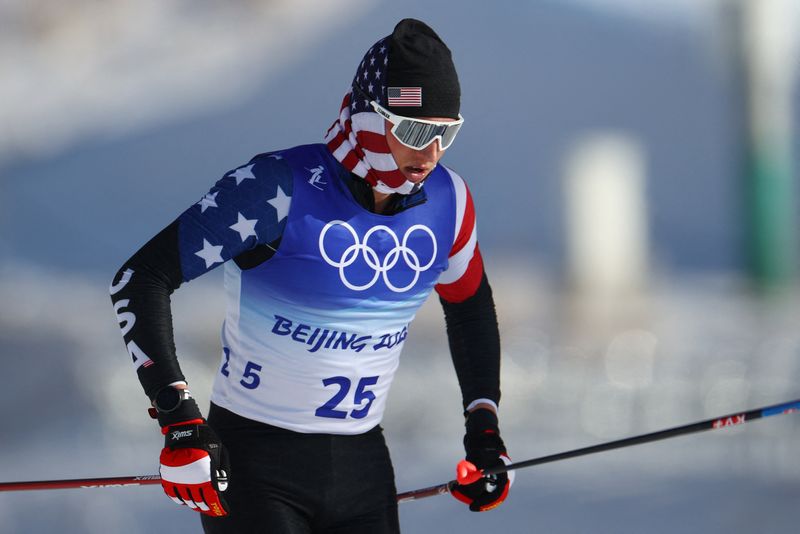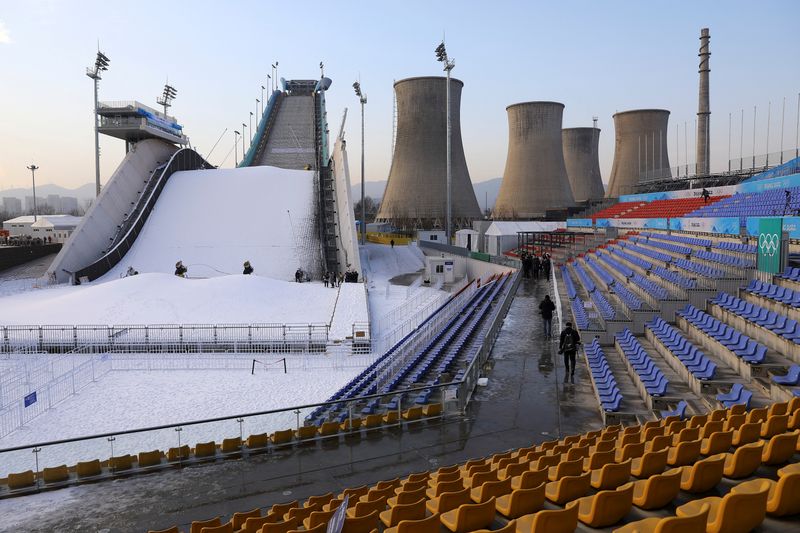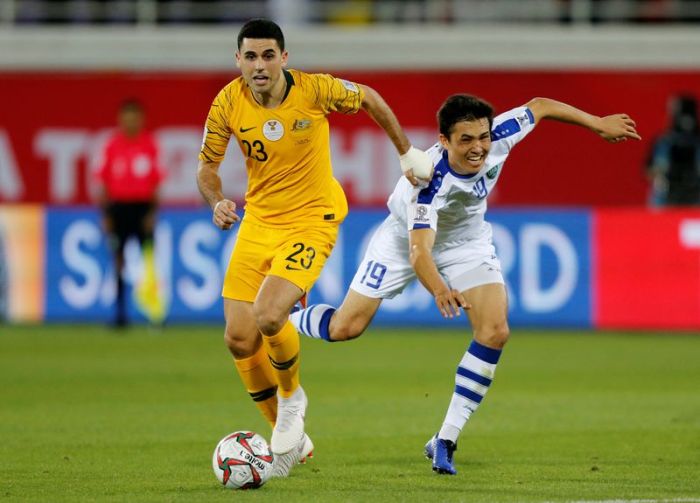ZHANGJIAKOU, China (Reuters) – Rising temperatures around the world pose a threat to winter sports, American cross-country skier Gus Schumacher said, and the Beijing Games has come under the spotlight for staging competitions solely on man-made snow.
Zhangjiakou, some 200 km north-west of Beijing, where the cross-country, biathlon and most of the freestyle skiing and snowboarding events are taking place, received a light dusting of natural snow before the Games began, but the competition surfaces are all artificial.
For Schumacher, it is a sign of things to come as less precipitation restricts athletes in terms of where they can train and compete.
“I think climate change will have the biggest impact on our sport in the years to come – there’s a lot of stuff that changes in skiing, but that’s the one that’s going to make it not possible,” the 21-year-old Alaskan said.
While many snowboarders and freestyle skiers are delighted with “grippy” snow that allows them more control when carving down the hills, cross-country skiers and biathletes have found the going tough on dry snow in freezing temperatures.
“I’m glad I’m not doing the distance races because I think it’ll be hard,” British sprint specials James Clugnet said. “If you get tired, suddenly you’ll go so much slower.”
The International Olympic Committee (IOC) has rejected criticism of the decision to use man-made snow in Beijing.
WIDELY USED
“Artificial snow is used in a consistent way for decades in winter competitive sports. It’s also very widely used for leisure winter sports as we know, we practice winter sports ourselves,” IOC director of corporate and sustainable development Marie Sallois told Reuters.
“The Winter Olympic Games, it’s no exception. What is really important, like for any other activities that we practice, is to try to do it in the most efficient way, and this is what I believe Beijing 2022 is trying to achieve,” she added.
Skier Schumacher said that the use of man-made snow had an impact on both the sports and the environment.
“In Norway, for example, where there’s still snow everywhere, you can warm up where you like,” he explained.
“But at artificial snow venues, you’re limited to the race loop, and they’re always salting it to protect it, so you can’t ski that much, and it’s harder to do what you need to race and train well.”
Climate change may well threaten the future of winter sports, he said.
“It’s already changing it – there’s less race security, fewer warm-up tracks, fewer places to ski, and so fewer people that are interested in doing it.”
(Reporting by Philip O’Connor; Editing by Himani Sarkar)

